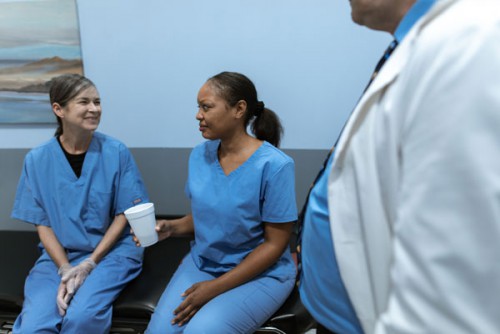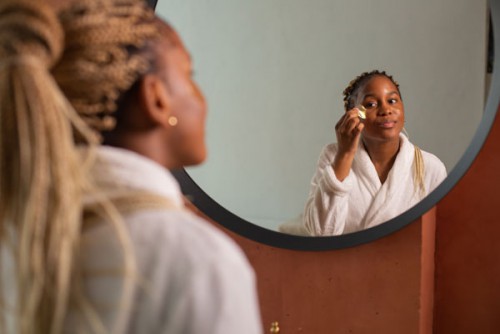News
How Can I Learn How To R.E.S.T.?
My name is Santhiny Rajamohan, Roberts Wesleyan University’s Professor of Nursing. I’d like to know… when was the last time you felt rested? Has it been a while?
I invite you to meet Nia who felt the same way and found a way to rest in the midst of her trials. She's a recently graduated nurse who just began her job at a nursing home.

During the COVID-19 pandemic, she lost her inner peace. Her passion she once had for her job faded. She developed insomnia and stayed up late pondering the meaning of her life.
Nia is not alone. Nationwide, 59% of American workers are experiencing at least moderate levels of burnout.
As a result of my own personal faith journey as well as my professional research into nursing burnout, I developed the REST: A Pathway to Becoming Resilient® framework.

What Is Resilience, Anyway?
Resilience is the mental ability to seek value and meaning in life’s hardships.
Hans Selye, an endocrinologist, once said, “It’s not stress that kills us, it is our reaction to it. Adopting the right attitude can convert a negative stress into a positive one.”
Let us seek peace through Christ together, and learn how to R.E.S.T.
Relationships (with self, others & God or a higher being)
Exercise (body, brain, mind & spirit)
Self-compassion.
Transformative thinking process leads to actions

Relationships
It’s important to build healthy relationships with yourself, with God, and others. These relationships help us cope with difficulty, celebrate successes, and live a fulfilling life together. They give us a sense of belonging.
Building an authentic relationship with God is vital for understanding who He is, who you are in relation to Him, and what He wants for your life.
Practical Suggestions
Seek God to find your purpose and meaning for each new day
Call a family member on your lunch break
Ask a friend if they could study with you

Exercise
Taking care of your body as God’s temple is a divine responsibility. (1 Corinthians 3:16)
Physical exercise can affect both your physical and mental health.
I read an article that said, “A recent study done by the Harvard T.H. Chan School of Public Health found that running for 15 minutes a day or walking for an hour reduces the risk of major depression by 26%.”
Exercising your brain is as important as your body!
Practical Suggestions
Establish healthy boundary with your technology
Do 15 minutes of cardio exercise
Brush your teeth or color with your nondominant hand

Self-Compassion
We cannot pour from an empty cup.
Self-compassion means you are as forgiving and loving toward yourself as you are toward others.
Brené Brown, a research professor at the University of Houston, once said, “Compassionate people ask for what they need. They say no when they need to, and when they say yes, they mean it. They’re compassionate because their boundaries keep them out of resentment.”
Practical Questions to Ask Yourself
What am I doing daily to fill my cup?
Is there a boundary I need to set with someone in my life?
Have I made time for my own doctor’s appointments?

Transformative Thinking
The foundational pillars of transformational thinking are self-awareness and reflection.
We need to take time to really know how we are feeling. After all, how can we truly transform ourselves if we don’t understand what we are originally thinking and feeling?
Questions to Better Understand Yourself
Where do I base my identity?
What is my purpose in life?
What did this challenging experience teach me about myself and my abilities?

In Conclusion
At the beginning of this article, I asked you when the last time you felt rested was. Now that we’ve learned how to R.E.S.T., I’ll leave you with a note of encouragement.
Jesus says in Matthew 11:28-30, “Come to me, all you who are weary and burdened, and I will give you rest. Take my yoke upon you and learn from me, for I am gentle and humble in heart, and you will find rest for your souls. For my yoke is easy and my burden is light.”
I pray this framework offers you some practical suggestions and serves you well as you strive to find inner peace in the midst of life’s challenges.
Sources
https://journals.lww.com/journalofchristiannursing/Fulltext/2023/01000/Fostering_Resilience_in_Nursing_Through_R_E_S_T_.11.aspx?context=FeaturedArticles&collectionId=4
https://pubmed.ncbi.nlm.nih.gov/36469873/
https://www.helpguide.org/articles/healthy-living/the-mental-health-benefits-of-exercise.htm
https://www.aflac.com/business/resources/aflac-workforces-report/default.aspx
